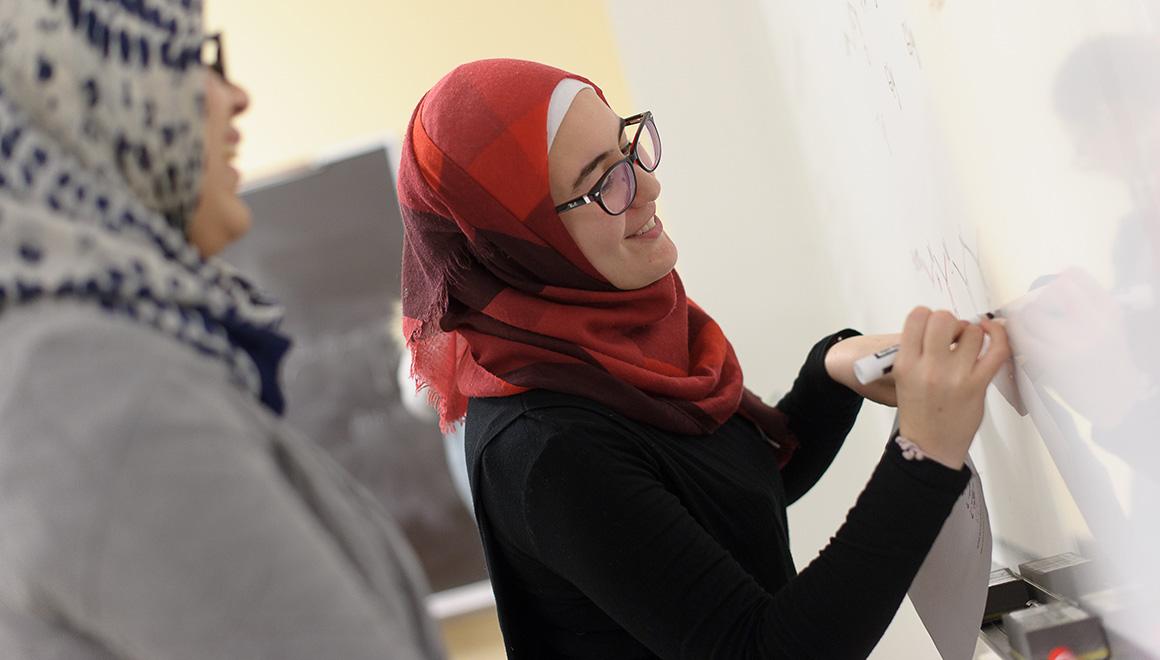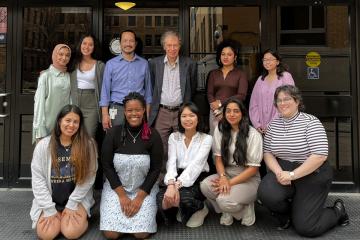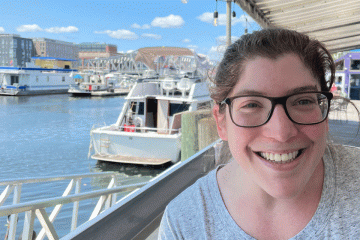Physics

At Simmons, physics is not just theoretical
Physics helps us understand the universe, from the vastness of space to the tiniest subatomic particles. It provides the foundational knowledge behind much of modern technology, including pacemakers, artificial limbs, integrated circuits, and rocket engines.
Earn a bachelor’s degree in Physics at Simmons and gain the powerful knowledge of how the world truly works. You will access opportunities in fields that value problem-solving skills — including aerospace, applied science, computer science, data science, engineering, energy, healthcare, and environment.
Simmons is committed to advancing women and gender equity in science and beyond. We provide a supportive environment designed to help you reach your full potential and meet your career goals. You'll benefit from small classes and dedicated faculty members invested in your growth and success.
What will you learn as a Physics major at Simmons?
Simmons’ BS in Physics combines a theoretical framework with hands-on undergraduate research opportunities. You’ll explore the structure and properties of materials, develop essential problem-solving skills, and gain valuable experience with computer modeling and data analysis.
Key topics in our bachelor of science program:
- Applied Physics
- Electricity and magnetism
- Foundational and Modern Physics
- Mechanics
- Mechanics, Quantum Mechanics, and Molecular Structure
- Physical Science
- Wave Phenomena
You’ll put concepts to the test working alongside our expert faculty on research projects. You are encouraged to jump right in during your first year on campus.
Many of today's most exciting areas of research occur at the intersection of different science and engineering disciplines. Our curriculum, research programs, and collaborations reflect this new interdisciplinary environment.
What can you do with a Physics degree?
Our graduates thrive in a range of innovative careers in both industry and education. Many pursue advanced study in medical school, law, dental, or graduate programs in physics, chemistry, biochemistry, and engineering.
Students interested in healthcare often major or minor in physics to distinguish their backgrounds and widen their research experiences. Explore healthcare careers through our Pre-Health Professions Track.
If interested in engineering, learn more about Simmons’ Dual Degree Engineering program, which includes physics courses.












